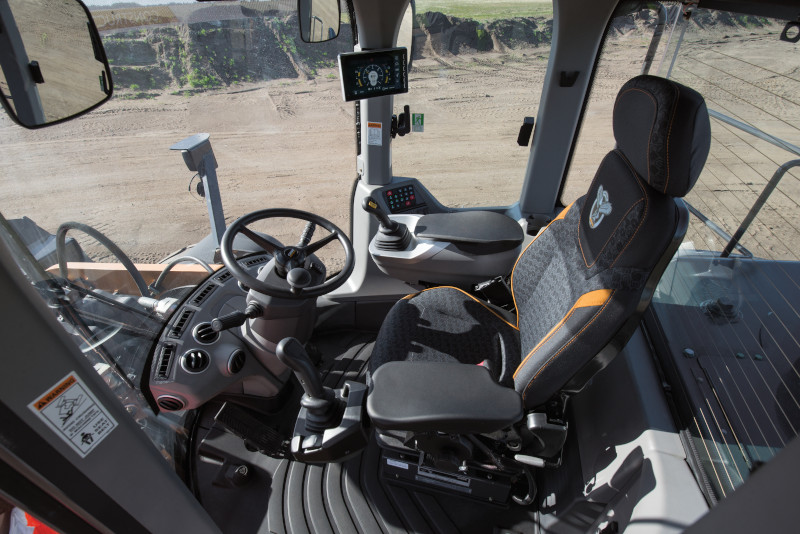
Not everyone goes to work and sits behind a desk. For machinery operators the office is the inside of a machine. Your ‘office’ is a little unconventional, but you can still be a victim of clutter. But unlike a desk job, where a messy space is an inconvenience, a dirty cab can prove dangerous.
Why Clean Your Construction Equipment?
We’ll state the obvious: we are living in a pandemic. Cleaning is a concern on everyone’s mind for the sake of their health, and the health of their employees. Learning to correctly disinfect the heavy equipment cabs on your job sites is a must.
Enclosed spaces like cabs can harbor germs if not cleaned. Aside from the immediate fear of coronavirus, a dirty cab can create an unpleasant working environment. Mud, stains, the remnants of snacks and more find their way into your skid steer cab. It’s a machine with a job, it sees action, we get it.
That said, cleaning your heavy machinery is a must for operator health. Plus, it will help ensure that your equipment stays in good operating condition. A very dirty forklift cab could lead to functionality issues if left unaddressed. Keeping your construction equipment clean keeps it running better for longer.
What to Clean
Germs can spread when construction equipment is shared among operators. As you would wipe down doorknobs in a traditional office, you should disinfect your forklift cab controls.
Focus your disinfecting on frequently touched areas. For example: door handles, grab bars, joysticks, arms rests, buttons or monitors of a machine. The CDC says physical contact with surfaces is not considered the primary line of transmission. That said, caution and attention to cleaning is encouraged.
It is best to assume that the virus is present. Clean your workspaces accordingly. Employees should wash their hands before and after working inside heavy equipment cabs. Operators should use disinfectant to wipe down all surfaces of the cab after use. It may take an extra 10 minutes, but it’s for everyone’s safety.
Surfaces to clean include:
- the steering wheel
- the gear shift
- all switches and controls
- door handles (interior and exterior), and other high-touch traffic areas
What Cleaning Materials to Use
The interior components of heavy equipment cabs like touch screens, switches, and upholstery require special treatment. Use one of the EPA-approved disinfectants designed to kill the Coronavirus. If possible it is best to choose a sanitizer that is contactless. This removes the need to wipe down surfaces after applying.
If that is not an option, you can opt for the use of alcohol-based wipes or sprays. Look for those that contain at least 70% alcohol to disinfect. The CDC recommends ensuring a contact time of at least one minute. We recommend against using products containing bleach to clean the inside of your construction equipment cab. bleach may disinfect, but it also may cause discoloration.
At the end of the work day, interiors of a skid steer cab, for example, should be vacuumed and hand wiped. High-pressure washing should never be used inside cabs or around controls.
If your machine has floor mats, remove those and scrub them with a brush and cleaning solution. Hose them down and let them air dry overnight.
Don’t forget about the windows. Dirty or broken windows can block an operator’s view of people or objects which can pose a potential hazard.
For heavy machinery with enclosed cabs and a working AC, the air ducts can become dirty. Those air ducts collect quite a bit of dust, mold or even mildew. To clean these, use an ozone air purifier. While the doors and windows are tightly sealed, turn on the HVAC system and let the ozone circulate the air for the recommended period of time.
Some air purifiers can kill many types of bacteria, mold, and mildew. As you research which air purifier is right for you, look for information regarding the system’s ability to kill bacteria.
This is a difficult time, and we all need to seek prevention strategies to ensure our health. If you still have questions about best practices, do not hesitate to get in touch with our team of experts. Our technicians are knowledgeable and experienced. Some of our many service locations even offer machine cleaning.



